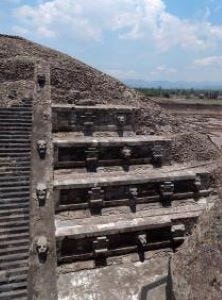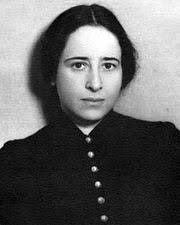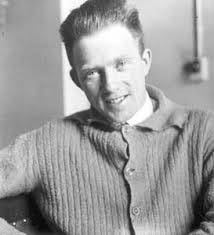Science is inherently political. This is not meant in anyway to degrade science, but reveals a most desperate need to reform politics by incorporating science into politics, while simultaneously developing an understanding of the politics of science. The other day some of our Tech Priests were evangelizing a “God-AI.” Lord, which fucking one? If it's Quetzalcoatl God-AI, these United States got an ass-whooping coming, something to think about my fellow Americans.
A half-century ago, one of history's greatest thinkers on democracy, Hannah Arendt, astutely defined our present predicament. Arendt thought about how to reform the latest iteration of democracy – modern republicanism. One thing she emphasized is all democracy at its core is about taking action, an understanding in direct opposition to much anti-democratic propaganda by its modern detractors. Arendt rightly perceived action as the goal of all politics. If it is to be democracy, every citizen is part of both deciding the action to take and helping in its implementation.
Arendt explained innate to this idea is with any action there is a beginning. This beginning is a fundamental political freedom. She writes,
“Perhaps the best illustration within the arena of Greek politics that freedom of action is the same thing as starting anew and beginning something is the word archein means both to begin and to lead. The twofold meaning manifestly indicates that originally the term 'leader' was used for the person who initiated something and sought out companions to help him carry it out; and this carrying out, this bringing something that has been begun to its end, was the original meaning for the word action, prattein. The same linkage between being free and beginning something is found in the Roman idea that the greatness of the forebears was contained in the founding of Rome, and that the freedom of the Romans always had to be traced to this founding—ab urbe condita—where a beginning had been made.”
The American republic long and rightly celebrated its founding generation. With all their faults they began, they acted, they were free. However, after two centuries, their founding institutions increasingly became not facilitators of action, of new beginnings, but a straight jacket limiting both citizen decision making and action. Writing in mid-20th century New York, Arendt critiqued the state of modern republicanism, participatory decision making, resulting in citizen action was largely illusory. Limited in a number of ways from the beginning, at that point American democracy existed not much at all.
With industrial society, Arendt astutely points out American politics, the political ability to begin and act, had largely become the exclusive enfranchisement of scientists and technologists. She writes,
“The capacity for action, at least in the sense of the releasing of processes, is still with us, although it has become the exclusive prerogative of the scientists, who have enlarged the realm of human affairs to the point of extinguishing the time honored protective dividing line between nature and the human world. In view of such achievements, performed for centuries in the unseen quiet of the laboratories, it seems only proper that their deeds should eventually have turned out to have greater news value, to be of greater political significance, than the administrative and diplomatic doings of most so-called statesmen. It certainly is not without irony that those whom public opinion has persistently held to be the least practical and the least political members of society should have turned out to be the only ones left who still know how to act and how to act in concert. For their early organizations, which they founded in the seventeenth century for the conquest of nature and in which they developed their own moral standards and their own code of honor, have not only survived all vicissitudes of the modern age, but they have become one of the most potent power-generating groups in all history.”
One of the first and foremost of these organizations, far and away becoming the most politically dominant force in industrial life, is the corporation. The corporation has never been democratically organized, at best its an oligarchy. It is corporation with ever new technology and a significant amount of government organizational support, that has most powerfully attempted to conquer nature. And there's the rub.
Through science we learn how nature operates. Science can be a most sublime and quite beautiful process. Science tells us what has been, how things that have come to be operate. However, science does not necessarily tell us the future, despite the hopes and dreams of more than a few scientists who believe all they need to be prophets is the right amount of data. Two foundational sciences, quantum physics and biological evolution, measure uncertainty at the bottom of all action and life as in part random mutation, selected not by the deeds of the individual, but the ever changing forces designing each species.
Science facilitates our inventions of technology based on the workings of nature. Science does not tell us in what ways we should develop any technology, that is in what fashion, and most importantly, whether we should even develop any given technology.
Historically, all democratic institutions – Athens, Rome, and the US – have been of the Agrarian Era, largely pre-science and pre-industrial. At best, America's republican institutions have been grandly insufficient dealing with modernity's literally universal increase in scientific knowledge and the resulting technological offspring. Arendt writes,
“The modern astrophysical world view, which began with Galileo, and its challenge to the adequacy of the senses to reveal reality, have left us a universe of whose qualities we know no more than the way they affect our measuring instruments, and—in the words of Eddington—'the former have as much resemblance to the latter as a telephone number has to a subscriber.' Instead of objective qualities, in other words, we find instruments, and instead of nature or the universe—in the words of Heisenberg—man encounters only himself.”
Arthur Eddington was the astronomer who confirmed Einstein's Relativity, the understanding to the great discomfort many of the inherently subjective measurement of the universe's most fundamental forces. While Werner Heisenberg was most influential in developing quantum physics. Who knew just a few years later Heisenberg would prove to be a good German? Well, he wasn't the only one. As an educated German of his era, Heisenberg could not only do math, but had a great Classical education. He would be familiar with Aristotle's fundamental insight, “By nature, man is a political animal.” And if Heisenberg is right that through science we find in nature only ourselves, science is politics.






Great post as usual Joe. I am rereading all your older posts.
As for the God-AI as expected it is an ex-Googler-the moron behind that:
https://www.dezeen.com/2017/10/11/anthony-levandowski-engineer-religion-artificial-intelligence-ai-god-way-of-the-future/#
https://en.m.wikipedia.org/wiki/Anthony_Levandowski
I really wonder about the people Google etc. pass off as scientists. They are technologists I suppose. I found Shoshana Zuboff's "The Age of Surveillance Capitalism" a truly eye-opening read...It is not reassuring how much influence Google/Zuckerberg/Microsoft/Apple etc. increasingly have over science and medicine..It makes me wonder when I see stuff like this:
https://www.bloomberg.com/news/articles/2023-09-08/google-ex-ceo-eric-schmidt-influences-ai-policy-with-27-billion-fortune#xj4y7vzkg
https://www.cnbc.com/2022/02/16/eric-schmidt-plans-to-give-ai-researchers-125-million-.html